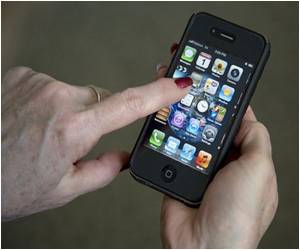Interpreting the data collected from volunteers' own smartphones can boost research into human behavior, revealed a new study.

‘Interpreting smartphone data of volunteers can help to boost research into human behavior, revealed a new study.’





Most of the earlier research works relying on smartphones focused on detecting factors in the features extracted from smartphone data. But that pure correlation analysis did not provide for a sufficient understanding of human behavior. Therefore, the study authors tried to identify factors that could be at the root cause of issues revolving around health and well-being.
In this study, the authors used data from a research project at Dartmouth College, Hanover, US, called StudentLife. It included information on participants' location taken from raw GPS data, which helped determine whether they were working or socializing.
Also included was data on activity levels, like running, walking or traveling on public transport, inferred from participants' raw accelerometer data.
They found that exercising and spending time outside the home and working environment have a positive effect on participants' stress levels.
Advertisement
The study was published recently in EPJ Data Science.
Advertisement








